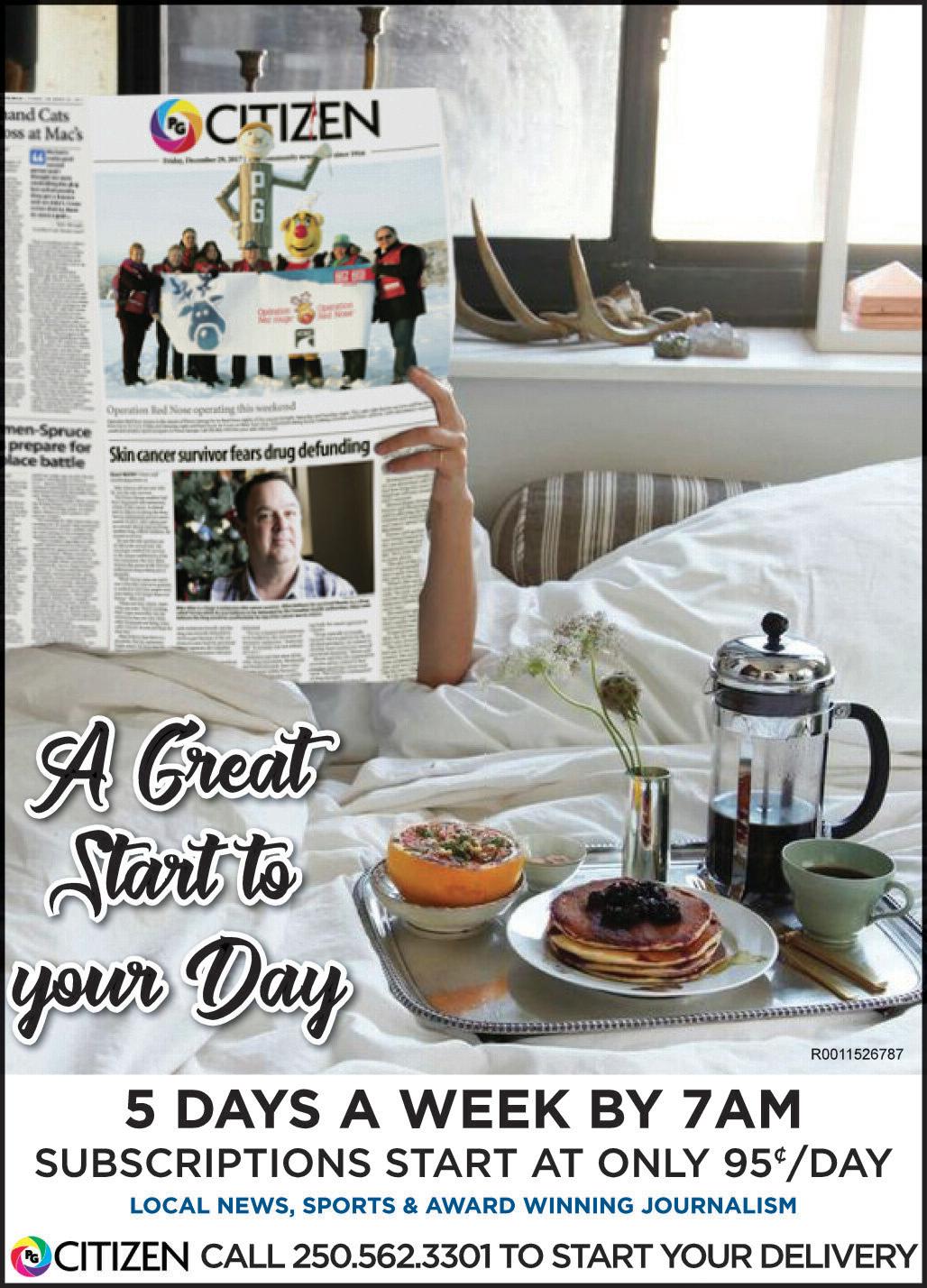

A familiar face
Darrell Fox, younger brother
Exploration Place.



Darrell Fox, younger brother
Exploration Place.
Christine HINZMANN Citizen staff chinzmann@pgcitizen.ca
There’s an old saying that starts out feeling very familiar but the end of the phrase used within the walls of one Prince George nonprofit group may stop you in your tracks.
“If you’ve seen one brain injury... you’ve seen one brain injury.”
That statement is driven home when Ma’iingan Corbiere, 47, starts to talk about when the culmination of an abusive relationship ended with a traumatic brain injury that sent her to an Ontario hospital in 2000.
Everything changed that day and for 17 years afterwards, Corbiere was in survival mode, trying to navigate the new world in which she lived that saw her searching for her words, trying to comprehend the most basic things, never knowing how to cope with her mixed emotions and the countless challenges that came with her brain injury.
“I can’t think of an area of my life that hasn’t been impacted by this,” she said.
“Basically, it changed who I was and I didn’t know who I was for a long time.”
Corbiere said in the past she didn’t receive any treatment that was brain-injury specific.


“And that posed a lot of difficulty in getting by,” she added.
“I went for 17 years being injured and being different and having symptoms and not understanding what was happening or how to fix it.”
Moving to Prince George to attend the University of Northern B.C. after earning a scholarship to pursue a master’s in social work, Corbiere experienced another setback that has not as yet been diagnosed.
“My brain felt like it shut down
and wasn’t working and life became even more challenging than it was before,” she said. “I couldn’t work and I couldn’t go to school and I had to take a medical leave from school.”
Her life’s course altered once again in January when she came through the doors of the Prince George Brain Injured Group (PG BIG).
“I hadn’t lived in a place where there was a place like this to go to,” Corbiere said.
— see ‘MY LIFE, page 3
nce 1916



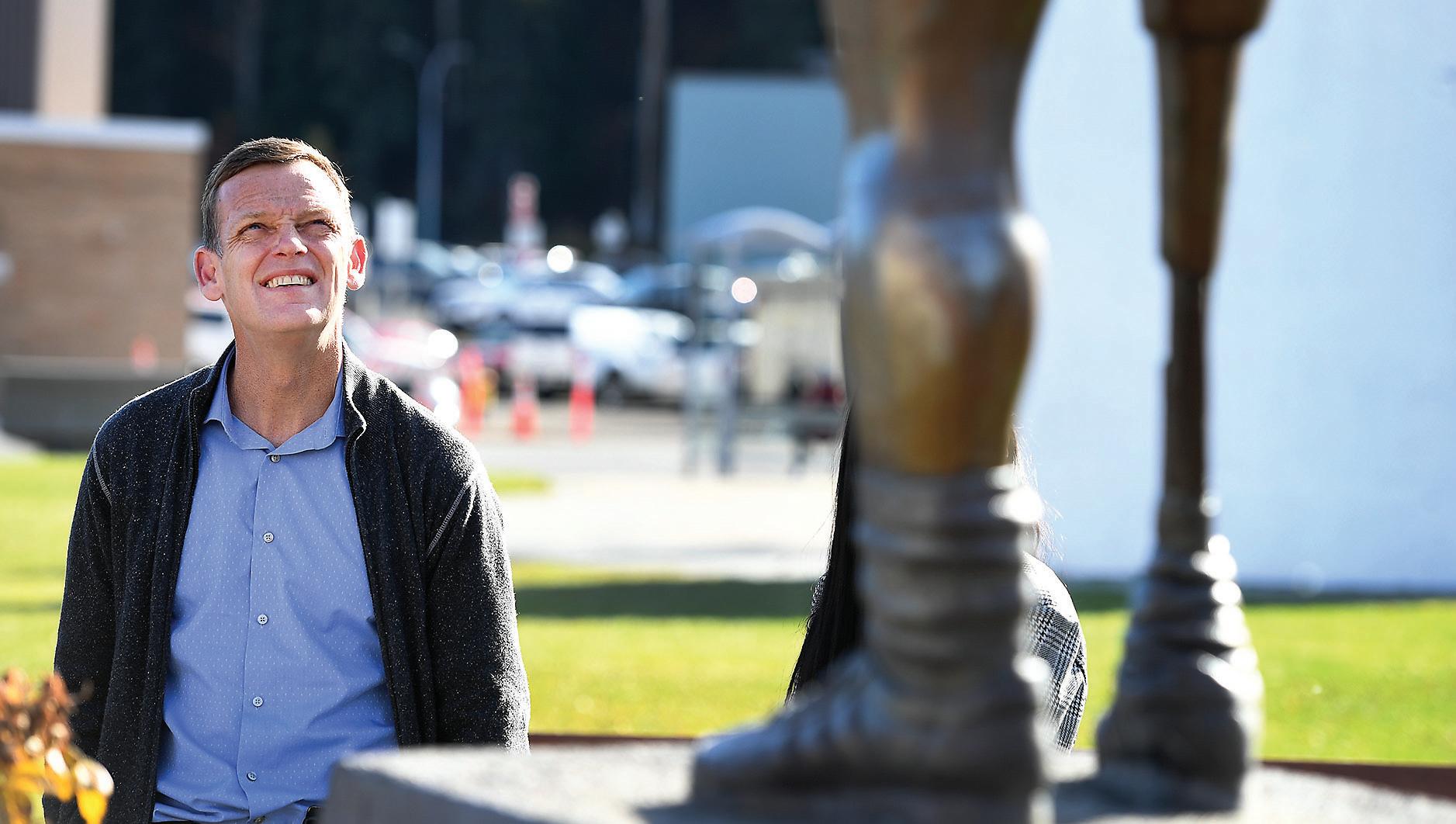
Susan LAZARUK Vancouver Sun
Valerie Peters is dreading the day the last Greyhound bus pulls out of Quesnel on Oct. 31.
The inter-city bus company, which announced last month it was discontinuing all bus routes within Western Canada, is cutting off the only way Peters has of getting to her job in Vancouver. Since she lost her full-time job in the oilpatch and has had to go on to a disability pension, she takes work as she can get it in the film industry.
“I had an accident and for medical reasons I can’t work at my old job any more,” she said.
“So somebody said, go to Hollywood North and be an extra, so that’s what I do, part-time.”
She’s one of thousands of passengers who will be left without regular bus service in parts of the province without scheduled bus service. And it’s still uncertain whether or not people in areas where bus companies have applied to offer service – but haven’t yet been approved – will have service on Nov. 1.
“We’re still waiting on the Passenger Transportation Board to approve our application,” said John Stepovy of the Edmonton-
based Ebus company that would like to operate scheduled daily bus service between Kelowna and Vancouver and between Kamloops and Vancouver. Peters, who doesn’t drive and who lives outside of Quesnel, takes the 11-hour ride into Vancouver whenever she gets a gig, and stays with friends to cut expenses.
She said without a vehicle, it’s difficult for her to take steady work in Quesnel “and this is the only way that I can make a little cash.”
But with Greyhound cutting service in about two weeks, “people are starting to panic,” she said.
The transportation board has received seven recent applications from bus companies wanting to provide scheduled intercity bus service. One between Nelson and Kelowna has been approved, two servicing Whistler will be reviewed shortly and decisions are “pending” for four other proposals, according to the PTB website.
“We have all the applications and we have the status of them posted,” said board director Jan Broocke.
— see ‘IT CAN’T, page 3



From Prince George provincial court, Oct. 5-12, 2018:
• Brandon William Davey (born 1988) was sentenced to 55 days in jail and one year probation and assessed a $200 victim surcharge for assault. Davey was in custody for 62 days prior to sentencing.
• Ryan James Allan Forrest (born 1992) was sentenced to nine days in jail and one year probation for assault and to five days in jail for breaching an undertaking or recognizance and assessed $200 in victim surcharges on the counts. Forrest spent a total of 19 days in custody prior to sentencing.
• Randolf Brian Noskiye (born 1960) was assessed a $100 victim surcharge for breaching an undertaking or recognizance. Noskiye was in custody for eight days prior to sentencing.
• Cory Allen Ernest Sargent (born 1989) was sentenced to 30 days in jail and assessed a $100 victim surcharge for breaching probation and assessed $200 in victim surcharges for possessing a weapon for dangerous purpose and willfully resisting or obstructing a peace officer.
Sargent was in custody for 59 days prior to sentencing.
• Kyler Gregory Thomas Stevens (born 1995) was assessed $700 in victim surcharges and issued a lifetime firearms prohibition for assault with a weapon, breaching probation, possessing a weapon for dangerous purpose, breaching an undertaking or recognizance and wilfully resisting or obstructing a peace officer.
Stevens was in custody for 358 days prior to sentencing.
• Myles Christian was sentenced to 20 days in jail and assessed a $100 victim surcharge for being unlawfully at large.
• Michael Darren Felix (born 1994) was sentenced to 13 days in jail and assessed a $100 victim surcharge for breaching probation.
Felix was in custody for four days prior to sentencing.
• Trent Lewis Gullickson (born 1982) was fined $775 plus a $225 victim surcharge for breaching probation.
• Phillip Travis Lazarre (born 1988) was assessed a $100 victim surcharge for breaching probation. Lazarre was in custody for 12 days prior to sentencing.
• Clayton Tyler Moll (born 1981) was sentenced to one year probation and assessed $200 in victim surcharges for two counts of breaching probation.
• Chasity Michelle Reed (born 1981) was sentenced to 60 days in jail, to be served on an intermittent basis, prohibited from driving for three years and fined $500 plus a $75 victim surcharge for driving while prohibited or licence suspended under the Motor Vehicle Act, committed in Mud River.
• Derek John Russell (born 1976) was issued a one-year $500 recognizance after allegation for causing fear of injury or damage.
• Kevin Kelvin John Beauchamp (born 1987) was sentenced to 37 days in jail and assessed a $100 victim surcharge for breaching probation.
Beauchamp was in custody for one day prior to sentencing.
• Devon James Lynn (born 1994) was fined $600 plus a $180 victim surcharge for breaching probation.
• Ronald Dale Collin (born 1974) was sentenced to 111 days in jail for two counts of possessing or using a stolen credit card and one count breaching an undertaking or recognizance and to 30 days in jail for willfully resisting or obstructing a peace officer. Collin was also sentenced to two years probation on the counts
• Leonard John Joseph Jr. (born 1981) was sentenced to 90 days probation for causing a disturbance and to zero days for breaching an undertaking and breaching probation. Joseph Jr. was in custody for 25 days prior to sentencing.
• Aaron Christopher Stanyer (born 1996) was sentenced to one year probation and ordered to pay 4420.57 in restitution for mischief $5,000 or under. Stanyer was in custody for 37 days prior to sentencing.
• Robert Alexander Flavel (born 1984) was assessed a $100 victim surcharge for breaching probation, committed in Vanderhoof. Flavel was in custody for two days prior to sentencing.
• Adam Julian Rodney McLean (born 1988) was assessed a $100 victim surcharge for breaching probation, committed in Vanderhoof. Flavel was in custody for two days prior to sentencing.
Mark NIELSEN Citizen staff
The B.C. Court of Appeal has trimmed 4 1/2 months from the time a man must serve for a near-fatal shooting of a rival in Prince George. In January 2016, Bradley Douglas Barr was sentenced to seven years in prison for pulling the trigger of his shotgun during a confrontation at a marijuana grow-op. Craig Frederick Lyver survived a trio of blasts but suffered what appear to be life-long injuries from the September 2012 incident.
Barr received credit of 11 months for time served prior to sentencing, reducing the term to a further six years and one month. But he was denied a further 137 days of credit for time he spent in custody after his bail was revoked to the date he was sentenced. Barr was arrested three days after the shooting and released on bail 40 days later. Then, in February 2015, he was arrested in relation to a drug-related murder in Prince George that occurred before the shooting.
Barr was charged with first-degree murder in the drug-related death of Jordan Christian Reno and remained in pretrial custody until sentenced for shooting Lyver. But the count of first-degree murder from the other incident was eventually dropped and he was sentenced to eight years and nine months for manslaughter. Upon sentencing, he was denied enhanced credit of 1 1/2 days for each day he spent in custody in relation to the murder. Instead, it was one-to-one adding up to 274 days.
However, in January, the BCCA found in a separate case that a section of the Criminal Code related to the issue was “overbroad because it captured offenders in ways that have nothing to do with is purpose of enhancing safety and security.”
Applying that decision to Barr, the BCCA found he was entitled to enhanced credit.



‘My life changed again but this time for the better’
— from page 1
Corbiere knew she needed help and did a self-referral to the local brain injured group.
“My life changed again but this time for the better,” Corbiere said. “Since coming here in January I’ve made so much progress.”
Working closely with lead case manager Julia Koopmans, Corbiere was given the coping tools, the knowledge to understand her symptoms and information about how the brain works that allows her to continue her university studies. After earning her master’s degree, Corbiere will further her education in Vancouver to become an art therapist who will proudly return to Prince George to help others who have a brain injury.
Art therapy helps people explore their emotions, improve self-esteem, manage addictions, relieve stress, improve symptoms of anxiety and depression, and cope with a physical illness or disability, according to the Psychology Today Canada website. And it’s helped Corbiere see her progress from someone struggling with her brain injury to someone who has slowly learned to accept it, work with it, live with it.
One of her many works of art is entitled Blessings of a Broken Brain. But that’s not what its original title was. In fact, Corbiere won’t even utter the original title because she’s moved so far beyond that anger, that frustration, and the art, without intention, has been a work in progress – a stark reflection of her own complex journey with brain injury.
The work was painted on a canvas using the colour purple, which symbolizes healing. The next stage, which was spontaneous, resulted in stab marks and slashes through the work, virtually destroying the piece, and finally after some time had passed Corbiere used gold-infused glossy purple thread to lovingly stitch up the canvas and tie those loose ends with pretty bows.
“I did a real number on it and it stayed that way on my wall for a while and then, as time went on and I learned more things, I sewed it back up again,” Corbiere smiled.
Through the art therapy course offered at the local BIG, Corbiere said she found her way back to art, using it as a way to express herself when her words just won’t come.
On a collaboration project with Darin, her husband of seven years, Corbiere was able to create a piece in honour of Orange Shirt Day, Sept. 30, which raises awareness about residential schools and its intergenerational survivors and their plight. The commissioned piece was for the National Centre for Truth and Reconciliation. The artwork was placed on T-shirts as a way to raise awareness and funds. Corbiere said her family, including her two sons Timothy, 28 and Liam, 22, is very proud of the work she and Darin have done for the cause.
“To be able to express my thoughts artistically holds such meaning,” Corbiere said. “It’s a way for me to creatively express myself when my words don’t come. I feel like an artist again. I feel like my art and my social work dreams are merging and to me, this is my first piece of artivism because it’s art with a whole lot of meaning.”
Understanding that she could help herself cope with brain injury, Corbiere has now taken all the courses available to her at the Prince George Brain

Injured Group.
As she learned about brain injury, she also learned about how to take care of herself to improve her life and rebuild.
“So when I learn something in a course and I get a suggestion I go home and try it and then I’ll try it again later if it doesn’t work and then I’ll try something similar and then I’ll ask someone else in my family ‘what can I do?’ and then we’ll brainstorm to find other ways, so I’ve really taken what I’ve learned and looked for more and that’s brought a whole lot more into my life as part of my treatment,” Corbiere said all in one big breath.
“I can clearly see that I will never be the same again but I can clearly see where I’m getting better. I’ve never gotten that kind of help before. It sure is nice to know now what to do – how to improve my life because I have now accepted that I live with brain injury and I think it’s been absolutely pivotal that I came here (PG BIG) because I was on a bit of a different path before that and I wasn’t so hopeful.”
Taking a deep breath Corbiere admitted she used to be quite suicidal.
Corbiere turned to Koopmans, who sat in on the interview.
“And I’m not anymore,” Corbiere said, smiling through her tears. “I still have trouble coping but I’m happy now and I found acceptance and I like my life better now than I ever did before. I’m pretty glad that I moved here and found the brain injured group. I’m not happy about what happened to me but I am happy I’m here and found support and a family here, really.”
To bring awareness to brain injury and offer some insight and understanding, the Prince George Brain Injured Group, celebrating its 30th anniversary, is offering a day-long seminar with international best selling author Dr. Norman Doidge who wrote The Brain That Changes Itself and The Brain’s Way of Healing. Doidge is a psychiatrist and psychoanalyst on faculty at the departments of psychiatry at the University of Toronto and Columbia University, the Center for Psychoanalytic Training and Research, and a training and supervising analyst at the Toronto Institute of Psychoanalysis.
During the seminar, Doidge will demonstrate the potential of neuroplasticity for treating brain injury, among other issues. The event being is held Friday at the Ramada from 8:30 a.m. to 4:30 p.m. Tickets are $150 each.
For more information visit www.pgbig.ca or register by calling conference coordinator Christine Smith at 250-564-2447 or by email at conference@pgbig.ca.
‘It can’t be a community by community solution’
— from page 1
“All I can say is the board is well aware of the exit of Greyhound and (board members) are reviewing the applications,” she said.
Ebus has its coaches ready to hit the road and has been hiring extra drivers but will need some time to set up the pick-up and drop-off network and arrange other operational details, which will take at least two weeks, said Stepovy.
“We’re getting to that critical point,” he said. “We can’t secure (pick-up and drop-off points) because we don’t have a licence.”
“We’re still hoping to start the service before Greyhound leaves,” he said, adding that is increasingly less likely as the days pass without a licence decision.
Greyhound said its pullout was necessary because of a 40 per cent drop in ridership since 2010.
Peters said if no company wants to provide service in the more rural parts of the province, “I think it should fully be the government’s responsibility” to offer inter-city bus service.
B.C. Transportation Minister Claire Trevena didn’t respond to a request for comment.
But the ministry sent an emailed statement saying it “recognizes the importance of encouraging the private sector to take over routes that will no longer be served by Greyhound”
and that “several” have applied.
“We urge other private operators interested in applying to provide service on any route in B.C. to make an application to the Passenger Transportation Board as soon as possible,” the statement said.
Quesnel Mayor Bob Simpson said service groups have been responding to inadequate bus service by arranging rides for locals to medical appointments free or at a nominal fee and he expects that to continue.
But it’s not ideal because “it’s all on the backs of volunteers.” And he shares Peters’ concern about safety if the lack of options pushes people to hitchhiking. Workers all commuting to the same out-of-town work sites have been carpooling. He said people have to come up with creative solutions to shared or public transportation, such as car sharing or an Uber-style system. While recognizing that a government-subsidized service would likely be cost-prohibitive,
(Quesnel Mayor Bob) Simpson said it’s not up to municipalities to provide inter-city bus service.
“It can’t be a community by community solution,” said Simpson.
“It’s an inter-community problem and it needs to have an inter-community solution and the best entity to lead that is the provincial government.”
Frank PEEBLES Citizen staff fpeebles@pgcitizen.ca
Country star Gord Bamford is coming back to Prince George. As usual, he never travels alone. Rising country name Jojo Mason will also be on stage when Bamford brings his Honkytonks & Dive Bar Tour to Heartbreakers Nightclub. The two troubadours will be in P.G. on Oct. 26. Bamford is one of the most awarded male vocalists in Canadian country music history. He has received 24 Canadian Country Music Association (CCMA) Awards including wins for Album of the Year, Single of the Year and Male Artist of the Year. He also has multiple Juno Award nominations and is the two-time winner (2013 and 2015) of Nashville’s Country Music Association CMA Global Country Artist Award. The trophies are on the strength of his 25 Top 10 singles in Canada including the No. 1 smash hit When Your Lips Are So Close. Mason, meanwhile, was playing junior hockey in Victoria
when an injury took him out of the sports game and into his second passion, country music.
The singer-songwriter has already scored four Top 10 singles and his new song Future is set to light the red lamp again, following in the footsteps of his debut smash It’s All Good, then Good Kinda Love, and Something To Wrap My Heart Around.
Get tickets to see the two affable modern country stars by visiting their websites.


Christine HINZMANN Citizen staff chinzmann@pgcitizen.ca
Saturday’s debate on proportional representation versus the first past the post system saw almost 200 people taking their seats in Canfor Theatre at UNBC.
Mail-in voting for the provincial referendum on electoral reform is taking place between Oct. 22 and Nov. 30, which prompted the university and the Prince George Chamber of Commerce to partner in hosting the debate with Peter Ewart of the Stand Up for the North committee, representing Fair Vote BC, and Vancouver-Fraserview MLA Suzanne Anton representing the No BC Proportional Representation Society.
The first part of the debate saw each of the debaters offer opening remarks before being asked questions provided by moderator Gary Wilson, with a limited time to answer. Then the floor was open in a traditional Q&A period where members of the audience could ask questions.
Explaining why first past the post procedure is not ideal Ewart said that a monopoly government did not best serve its people.
“Proportional representation will top up and balance out seats in our region so we’ll always have a mix of government and opposition MLAs to speak out and
break out the big party monopolies,” Ewart said.
“Our votes will no longer be wasted. They will count.”
In response Anton talked about the value of keeping local MLAs local because they are invested in their community. Anton talked about how Prince George MLAs advocated for the creation of the BC Cancer Agency’s Centre for the North and how it was put in place.
“Do you think when someone came into their office – do you think they asked them if they were NDP or a Liberal or a Green?” Anton asked. “They don’t care.”
She went on to say local MLAs are nonpartisan and work hard for all constituents.
“That’s what you give up under proportional representation,” Anton said.
“You will give up local MLAs.”
When Ewart was asked what choice he would make of the three options for proportional representation and why, he deferred by saying he would encourage everyone to study all three and pick one of the three and bypass a vote for first past the post.
In the meantime, Anton responded by saying that first past the post sees the person, not the political party to which they are affiliated.
“And that’s the fundamental differ-
ence,” Anton said.
A lot of discussion came up about the details of the three options of proportional representation and those details, Ewart said, would be fleshed out after the vote.
“There are no maps, no indications of how many districts there will be, no indications of how many regions there will be,” Anton said and added there is also no indication of how many people will be elected in each district or region.
Ewart stated that with proportional representation if a party should get 30 per cent of the votes, it would get 30 per cent of the seats.
Closing remarks included each debater asking for the audience to vote for their cause.
“We have a very strong, stable government system in British Columbia,” Anton said. “There is no reason to change the way we vote.”
Ewart reminded Anton about the fairy tale she just spoke about and added his opinion.
“Proportional representation is more democratic and every vote will count,” Ewart said.
For more information about proportional representation visit fairvote.ca and for more information about first past the post visit nobcprorep.ca
The City of Prince George’s new electric car was unveiled Saturday at the Electric Car Showcase at the Prince George Farmers Market.
The Chevy Bolt joined the City’s vehicle inventory in June and is part of council’s strategies relating to improving air quality and the environment, city hall said in a press release.
Prince George is the first local government in B.C. to have a Bolt in its fleet. It is being used as an educational showpiece at events like the Clean Air Forum and for day-to-day in-town driving.
Another electric vehicle, a Nissan Leaf, is currently shared between the City, the Regional District of Fraser-Fort George, Northern Health and UNBC.
The Bolt is expected to save the city about 5,000 litres of gas and 11.8 tonnes of carbon dioxide equivalents in its anticipated seven-year lifespan.
According to a recent Fraser Basin Council report, electric vehicles have the potential to significantly reduce greenhouse gas emissions and local air pollutants. Compared to conventional vehicles, electric cars create negligible tailpipe emissions.
The new addition represents a step forward in Prince George’s commitment to the West Coast Electric Fleets Pledge to advance and expand zero-emission vehicle use. The city joined the initiative in December 2016.

Glen KORSTROM Citizen news service
Entrepreneurs eyeing Wednesday, when Canada legalizes recreational marijuana, are frustrated with delays and government bureaucracy that have combined to ensure that B.C. will not have any privately run cannabis stores for months to come.
A single British Columbia Liquor Distribution Branch-run (BCLDB) cannabis store is slated to open in Kamloops on the day legalization takes effect and the government has promised to have its e-commerce platform operational.
The BCLDB told Business in Vancouver in an email, however, that consumers should expect “reduced volumes and assortment of non-medical cannabis.”
That is because the four largest licensed producers that agreed to supply the BCLDB have said that they will not be shipping it their full product commitments by the deadlines set out in their supply agreements, according to the BCLDB.
Many licensed producers that intend to supply the recreational market face challenges such as licensing delays, crop failures, lower-than-expected harvest yields, a shortage of packaging, product scarcity owing to exports and general problems in the supply chains. Private stores will have an even slower start.
As of Oct. 10, government data showed that entrepreneurs had paid 173 application fees for retail licences across the province. Of the 111 paid applications that government workers deemed to be complete, only 62 have been forwarded to local governments or First Nations to approve.
None of those applicants have received conditional approval, much less had a licence issued.
“Some municipalities have decided that they will put it on the back burner,” said JAK Group CFO Mike McKee, who has paid the B.C. government fees for five applications and had three of those forwarded to municipalities for approval.
McKee said that a year from now, he
would like to operate eight private cannabis stores, the maximum number the province allows any ownership group to operate.
“In Coquitlam, they’re going to wait until after the (Oct. 20) municipal elections before they get down and deal with the issue,” he said.
“Right now, there’s no real opportunity.”
Another challenge in some municipalities, he said, is that city councils have told him that they want the process to include spot zoning.
That means that instead of allowing a cannabis store to simply open in a commercial area zoned for retail, that store would have to go through an additional rezoning process that includes public hearings.
“In a lot of areas, it is not going to be until spring or summer when you’ll see these types of stores opening up,” he said.
In contrast to McKee, who has never operated a cannabis store, many entrepreneurs have long operated dispensaries that federal law has deemed illegal.
Some of those people are slashing prices to liquidate merchandise and close so they can embark on a legal application, while others are shifting merchandise so that their stores sell only legal paraphernalia.
Weeds Glass and Gifts owner Don Briere told BIV that he will either close his stores in Kamloops, Williams Lake, Sechelt and North Vancouver or temporarily sell only accessories before fully closing them and applying for legal licences.
He will keep his four Vancouver stores open pending the outcome of a petition against the City of Vancouver in BC Supreme Court that involves dozens of dispensaries, and also includes provincial and federal attorneys general as participants.
The dispensary petitioners argue that city and federal laws unconstitutionally limit reasonable access to medical marijuana and that the city therefore has no jurisdiction to issue licences.
“They are completely, totally ill-prepared,” Briere said of governments at all levels.
Christine HINZMANN Citizen staff chinzmann@pgcitizen.ca
There are 11 candidates looking to be voted into one of five trustee positions available for the School District 57 electoral area for Prince George.
Election day is Saturday from 8 a.m. to 8 p.m. at several locations throughout the city.
Seeking to become school trustees in Prince George are Betty Bekkering, Tim Bennett, Trent Derrick, Sarah Holland, Trudy Klassen, Allan Kranz, Ron Polillo, Stephanie Mikalishen-Deol, Corey Walker, Sharel Warrington and Bruce Wiebe.
The Prince George candidates were invited to a meet and greet called Coffee with the Candidates at the library Saturday where the public could talk to them in a relaxed setting.
Opening remarks started off the event with each candidate offering a brief description of their platform, which gave some insight into why they were running for school trustee.
Soon after that members of the public were invited to sit down with the candidates, grab a coffee or tea and have a chat.
Michelle Frechette engaged each of the candidates, as a college student whose focus is a bachelor’s degree in education.
“I am a very detail-oriented person in general and I am looking for a connection with the school district trustee candidates because in the future I will be part of the system that educates our children.”
She also said she hopes to have children one day and they’ll be in the local school system so the Sexual Orientation Gender Identity (SOGI) policy that sees the board
of education committing to creating and sustaining a safe and positive environment for all students, family and employees who self identify as LGBTQ is important to her.
“I support SOGI because I don’t want the little people that are growing up here to have such a narrow version of the world,” Frechette said. Bonnie Watt and husband, Rob, who have deep connections in local education, were also in attendance so they could chat with candidates.
“We’ve lived here a long time and met at PGSS (Prince George Secondary School) and now our grandsons attend PGSS, so we have a lot of history in the community,” Bonnie said. She and Rob both attended the College of New Caledonia and raised their family here. Rob became a teacher and Bonnie became a nurse, she said, and her son is a principal at a local elementary school.
“So there are lots of investments in our school system,” Bonnie said. “So we’re interested in education, we realize how important it is, that it never stops and there’s enough funding for students in need.”
Rob said it’s our responsibility as citizens of Prince George to educate ourselves about the candidates.
“The school trustees are going to spend a lot of money in our area in the next year or so,” Rob said. “It’s absolutely critical we do a good job of choosing people and this event has a marvelous format because you can learn an awful lot talking to a person for five minutes.”
For all the details about the election and where to go to vote visit rdffg.bc.ca, scroll down to featured links and click 2018 trustee election.
For more on the school trustee candidates, visit www.pgcitizen.ca




Saturday afternoon’s proportional representation debate was everything that is wrong about political discourse in this hyper-partisan era, where intelligent, well-meaning individuals discredit themselves, insult one another and cynically manipulate their audience with cheap shots, exaggerations, circular arguments and meaningless platitudes.
No wonder people are so turned off by politics today.
Peter Ewart, arguing for people to vote yes in favour of changing B.C.’s electoral process to proportional representation, and Suzanne Anton, encouraging voters to vote no and keep the current first-post-thepost, spent an hour talking past each other, rather than listening and responding to each other’s points.
Ewart patronizingly dismissed most of Anton’s points as “fairy tales.” The only thing that would have made his condescension complete was to pat her on the head. He used the phrase multiple times but at no point actually explained why her arguments were, indeed, fairy tales.
Anton was no better, constantly reminding the audience that her experience as a Vancouver MLA means she understands government better than some Fair Vote advocate from Prince George. Her tone was the Van-splaining drone we’ve all heard so
many times before, when someone from
Vancouver flies up to the hinterland to edumacate us on the way the world works.
The irony is they both resorted to mirrorimage arguments to support their cases.
The parties have too much control of the elected representatives under first-pastthe-post, Ewart continuously insisted, but the winning candidates will have more power under PR to reflect the will of voters.
Meanwhile, Anton constantly claimed that elected officials have plenty of automony under first-past-the-post but will lose that independence to party bosses under PR.
In other words, they were saying the same thing – excessive political party control of elected politicians is bad and representatives that represent their constituents fairly is good. So maybe the discussion should have been about how to lessen the role of political parties and boost the ability of representatives to publicly disagree with their leader and vote against their caucus.
The worst part about Saturday’s debacle was the intentional effort to stir up emotional responses, rather than intellectual consideration, among the audience members.
Repeating one of the brochures distributed outside of the lecture hall, Anton said PR will allow for the election of Neo-Nazis and other extremists. That is true but then she took it too far. She argued that there’s no way a Neo-Nazi candidate could win a seat in the legislature under first-past-the-post. Just
because it hasn’t happened doesn’t mean it couldn’t. Nobody thought a few years ago that three Green MLAs could hold the balance of power in the legislature, either. She then crossed way over the line, insinuating that the rise of extremism across the world was linked to the spread of PR. Nice try.
Extremism is on the rise in democracies around the world because of globalization, mass immigration, ethnic and religious intolerance and economic and income inequality, big problems that easily overshadow how those democracies elect their political leaders.
Repeating the Fair Vote brochure, Ewart stressed that voters “feel” their MLAs listen to their party, not them, and they “feel” disenfranchised if they live in a region where all of the MLAs are part of government. What does it matter how voters feel? Are those feelings justified by fact? Ewart made no effort to prove that B.C. MLAs care more for their parties than for their constituents because not only is there no simple scientific way to prove that but also because centuries of parliamentary democracy clearly shows what voters do to incumbents who no longer accurately reflect their communities.
Both Ewart and Anton are thoughtful and knowledgeable individuals who want what’s best for B.C. voters. If they had started from there, they might have engaged in a

The Prince George municipal election has been somewhat devoid of any real election issues. We did have some discussion in regards to the road budget, however this was not really an issue, rather it was a discussion as to whether a portion of the budgeted money for paving roads should have been spent on sidewalks.
The last time I looked most sidewalks are connected to roads and for all intents and purposes they are one and the same. In any event the present administration spent approximately $28 million on road rehabilitation in the past four years, and there is every indication that the same or more will be spent on roads in the next four years. A good portion of this money will come from the federal gas tax fund, as it has in the past. The road budget is not indexed to inflation and if it were, we would then be subject to a tax increase to cover the cost of inflation. My suggestion is that the next council find another source of funding for any shortfall in the road budget due to inflation. The federal gas tax on the other hand is indexed to inflation and therefore that portion if used for roads will be covered.
So, no real issue on roads, and we should in fact be giving the present mayor and council kudos for a job well done, rather than trying to make a positive look like a negative. We need only drive around Prince George to see that there has been a significant im-
provement in roads over the past four years. We can, I am sure, expect a significant improvement in the next four years.
The other issue seems to be the overtime paid to city administration for time worked during the fire season of 2017, when Prince George had thousands of evacuees from other areas of the province that needed to be looked after. The overtime provisions for city management were in place when this situation arose and this was the criteria used to establish the pay rates for those who worked overtime. The provincial government is responsible for emergency services and pays the city for any costs incurred during a crisis. Hence they paid for the overtime that was worked by city staff. No doubt there is a better and more efficient way to handle these types of situations and as far as I know the city did a better job in 2018 and will do even better in the coming years. I think we need to keep in mind that we were all caught by surprise by the huge numbers of fires in Northern B.C. and in actual fact those involved did a good job under the circumstances, so lets give credit where credit is due, and move on. Now for the election. We have a present council that for all intents and purposes have done a good job over the past four years, and in my opinion those who are running again deserve our support. We have a progressive thinking council who are willing to listen to people and who try


and do the right thing. We have a mayor who represents the city well and is approachable and willing to listen to people concerns. This council has served us well for the past four years, and I am sure they will do the same for the next four.
The real problem comes in filling the two seats left vacant by Albert Koehler and Jillian Merrick. We have a number of good, young, qualified candidates running for council and they have some good ideas to bring to council, not the least of which is working to solve the homeless problem in this city. We need to support these candidates and get them into council so that they can be part of the future of this city. A few fresh faces at the council table would be terrific. Last but not least is voter apathy. This election more than ever requires us to make an extra effort to get to the polls and vote. What we do in this election sets the table for the next election in four years, which will, in my opinion, be a real donnybrook. Let’s show the candidates that we appreciate them running for council and trying to make Prince George a better place. Take some time out of your busy day on Saturday and cast your vote.
We the voters have a part to play in these elections and that part requires us to vote. Let’s make a concerted effort in this election and in future elections to increase voter turnout.
Eric Allen
Prince George
Mailing address: 201-1777 Third Ave. Prince George, B.C. V2L 3G7 Office hours: 9:00 a.m. to 5:00 p.m., Monday to Friday General switchboard: 250-562-2441 info@pgcitizen.ca General news: news@pgcitizen.ca Sports inquiries: 250-960-2764 sports@pgcitizen.ca Classifieds advertising: 250-562-6666 cls@pgcitizen.ca
meaningful discussion, starting with admissions that neither electoral system is perfect and both are flawed.
How refreshing it would have been for Anton to admit that first past the post has produced some horrible distortions in the legislature, such as the 2001 provincial election, where the Liberals held 97.5 per cent of the seats with 58 per cent of the vote, the NDP held the other 2.5 per cent of the seats with 22 per cent of the vote and the Greens had no seats to show for getting more than 12 per cent of the votes.
In turn, how refreshing would it have been for Ewart to admit that proportional representation wouldn’t have changed anything about that 2001 election. Gordon Campbell’s Liberals would still have had a majority of the seats so they would not have had to work with the other parties in order to govern. The referendum comes down to a simple choice between two imperfect electoral systems. Elect B.C. MLAs differently than before, despite the uncertainty over details that haven’t been worked out for voters to consider, or stick with the current system, warts and all.
That’s a choice that transcends party lines or political ideology.
Unfortunately, Saturday’s debate provided little clarity to help voters make their decision.
— Editor-in-chief Neil Godbout
On Saturday, the Chamber of Commerce and UNBC hosted a debate between both sides of the question for the proportional representation referendum.
There was a very strong turnout – I counted about 190 individuals which for a political forum on a sunny fall day is very good. The opening remarks surprised me a bit. I was fully expecting Peter Ewart to rail against wasted votes. Instead, the major thrust of his argument seemed to be our present system doesn’t work for anyone because it is controlled by party politics.
He went so far as to contend our local MLAs only do what the party says. I know or have known all of our local MLAs for the past 25 years and have interacted with each of them along with the candidates for all of the political parties.
To say any one of these individuals was simply touting party lines is grossly unfair.
For example, while I might not always agree with Shirley Bond on issues – indeed, I have written many columns critiquing the B.C. Liberal government – I would never question the dedication she has shown representing all of the people in her riding. She has always been willing to listen to alternative views and engage in discussion.
I have also had the privilege of seeing our governments at work in committee below the level of the legislature. There is far less acrimony and far more agreement than most people realized.
We don’t really lurch from hither to yon with respect to major policy as Ewart contended. Yes, you can “cherry pick” some examples where the government has gone ahead and done things which reverse previous policy. But the vast majority of initiatives carry forward from one government to the next. Just consider Site C and LNG which have transitioned across party lines.
Speaking of “cherry picking,” I do wish those in favour of proportional representation would come up with something more intelligent than accusing their opponents of “cherry picking” when they are doing it themselves.
When someone stands up and says – to paraphrase – “proportional representation is great. Ninety countries around the world use it. Why wouldn’t we?” that is a form of cherry picking. But more to the point, when their opponents now try to unpack that statement,
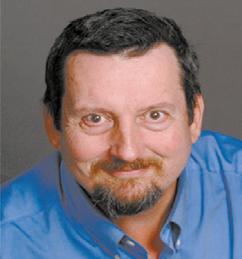
you can’t simply accuse them of cherry picking. Under the general rubric of proportional representation, we have a number of countries such as Russia which few people would consider a democracy. But bring it up and that is cherry picking. We also dysfunctional governments such as Italy, Northern Ireland and Sweden but mention these and you are cherry picking. Or bring up countries where the ruling party has been blackmailed into particular legislation by a minority partner in their coalition, such as Germany, and you are cherry picking. Then there is the problem of unpopular governments being able to retain power by assembling a coalition of the willing despite the sentiment of the majority of voters. It is actually much more difficult to remove an unpopular government under proportional representation than the proponents will tell you. Mention what has happened in Norway, though, and you are accused of cherry picking.
In any case, the major thrust of Ewart’s support for proportional representation seemed to focus on the idea of getting rid of political parties. Several times he indicated under PR, parties would not have as much control over their candidates. I find this a very perplexing argument since any of the forms of PR being proposed in the referendum would leave some members of the legislature entirely beholden to the party for their position. This is the very nature of any form of “list proportional representation” – MLAs are drawn from a list constructed by the party. Under a PR system, there would be many more parties in the legislature not fewer and they would have far more control over the members not less. Unless, of course, the PR system is going to be set up in such a way as to limit the members of the legislature to the three major parties we have in the province which is what the five per cent minimum seems to be about. In any case, how we elect our MLAs does not appear to be the issue voters have. The real question is – what happens once they are in the legislature? And nothing presented by either debater spoke to this issue.
Display advertising, digital advertising and website inquiries: 250-562-2441 ads@pgcitizen.ca Reader sales and services: 250-562-3301 rss@pgcitizen.ca Letters to the editor: letters@pgcitizen.ca Website: www.pgcitizen.ca Website feedback: digital@glaciermedia.ca



Colette DERWORIZ Citizen news service
Parks Canada says visitors should do their research on cannabis before going to a national park because the rules vary in each province and territory.
Officials said their approach to recreational cannabis when it becomes legal Wednesday will be consistent with how the parks and protected areas treat the possession and consumption of alcohol.
“All relevant provincial, territorial or municipal legislation and regulations will apply in all national parks, national historic sites, national marine conservation areas and historic waterways within a given province, territory or municipality,” said Marie-Helen Brisson, a national spokeswoman for Parks Canada.
Parks Canada treats individual campsites as a home away from home, she said.
“Consumption of cannabis will be permitted in campsites,” said Brisson.
“However, consumption of cannabis will not permitted in common areas within campgrounds such as playgrounds, kitchen shelters, washrooms, trails, parking areas or roads.”
Playgrounds throughout the park are offlimits for cannabis use, but rules for other public areas will be based on the rules in each province.
Hikers in some provinces – including Alberta, British Columbia, Ontario and Quebec – will be allowed to smoke on hiking trails and in the backcountry.
“You have been able to smoke in the backcountry and you will be able to continue to smoke in the backcountry,” said Greg Danchuk, manager of visitor experience for Banff National Park.
Six towns and villages within national parks each have their own cannabis rules.
Banff and Jasper in Alberta, Waskesiu in Prince Albert National Park and Wasagaming in Riding Mountain National Park won’t allow smoking in public areas.
Danchuk said Banff National Park will follow municipal and provincial regulations.
“At Parks Canada locations in the Town of the Banff... it would be the same as within the Town of Banff so smoking or vaping would be prohibited there,” he said. “The rest of the park, outside of the Town of Banff, we’re taking an approach that’s consistent with the province of Alberta.”
Down the road in Lake Louise, visitors will be allowed to use cannabis in public.
Similarly, smoking is allowed in the village in Waterton Lakes National Park in southern Alberta and Field, B.C., in Yoho National Park.
Ski resorts within Banff National Park also have their own policies when it comes to the drug.
“As a family resort, we are committed to providing a safe and healthy place for both our guests and our team members,” said Kendra Scurfield of Sunshine Village.
“With safety in mind, we have adapted a no-cannabis policy for the mountain.”
Lake Louise Ski Resort said they will only allow cannabis where they currently allow smoking.
“Smoking technically is not allowed on our mountain,” said Dan Markham, a spokesman for Lake Louise.
“There are certain areas at the base where smoking is allowed, regardless of what you are smoking.
“From our perspective, it’s not going to get looser. It’s only going to get tighter as we go. The feedback from guests is that they don’t prefer smoking at all at the resort and it’s not congruent with a healthy outdoor lifestyle.”
Citizen news service
VICTORIA — Baby Zavier is barely three months old but he’s already making history with his arrival at British Columbia’s legislature.
Born in July, Zavier Matieschyn became the first child to take a seat in the chamber of the legislature when he arrived at a parliamentary session Monday in the arms of his mother, Energy Minister Michelle Mungall.
He is the first baby permitted a front row seat at the legislature after all parties unanimously supported rule changes last spring allowing infants on the chamber floor while in the care of a parent.
The policy followed previous changes over the past two decades that included adding change tables in the washrooms and allowing for maternity leave, Mungall said.
She carried her son into the chamber and introduced him to loud applause from politicians.
“I want to thank everybody in this house for making this moment possible and for making our democratic institutions more family friendly,” she said inside the legislature.
Mungall, who held her son, was accompanied in the legislature hallway by her husband, Zak Matieschyn.
“People have been going out of their way to ask what can they do to support and make sure that this place is a family



Citizen news service
VANCOUVER — A sea lion suffering from gunshot wounds to the head has been taken to the Vancouver Aquarium Marine Mammal Rescue Centre for treatment.
The aquarium says this is the second time in the span of 18 months that it has responded to such an incident.
It says in a news release that on Thursday a team of seven people went to a beach on the west coast of Vancouver Island, where an adult male Steller sea lion had been reported unresponsive but alive for several days.
Megan Strobel, a veterinary fellow at the aquarium, says preliminary exams show at least one bullet lodged in its skull and that the animal is possibly blind so it won’t be able to live in the wild.
At about eight to 10 years old, the aquarium says the sea lion weighs between 300 and 350 kilograms, which is considered underweight for a healthy adult male of its species.
Martin Haulena, head veteri-

narian at Vancouver Aquarium, says shooting sea lions is a serious animal welfare issue.
“It is unacceptable to shoot sea lions,” he says. “Based on his body condition, this individual has been suffering for many weeks.”


Citizen news service
FORT ST. JOHN — Some residents of the northeastern B.C. community of Old Fort are being allowed to briefly return to their homes after they were ordered out last week because of a slow-moving landslide.
The Peace River Regional District says on its website that residents with homes in the eastern portion of Old Fort, furthest from the slumping hillside, will be ferried up the Peace River to their properties, beginning at noon Monday.
The district says areas of access to the community of about 54 homes could be expanded, depending on advice from a geotechnical engineer.
Those owners allowed to return will have a chance to retrieve belongings and prepare their homes for winter, but will not be allowed to remain on their properties.
The notice says temporary access permits will continue until all owners have had a chance to return to Old Fort, or as long as it’s safe to be in the area.
Re-entry permits were approved after a Sunday meeting with residents – two weeks after the hillside separating Old Fort from nearby Fort St. John began edging downhill, tearing up the only road to the community, knocking out power and threatening homes.
The district says a maximum of two people per residence will be allowed into their home and they may bring out one suitcase, one carry-on and one tote or box for each person verified to live in the home before they’re transported out by boat.
Only those who are 19 and over will be granted temporary access permits, the district says.
Gord Pardy says his wife and one of their four
daughters will be returning to their home to get some items while he starts a new job this week.
He says residents heard at the meeting that groups of 30 people at a time would be allowed to return home.
Representatives of the Transportation Ministry and the regional district were at the meeting on Sunday, he says, adding residents heard the road to their community appeared to be “looking good.”
He says some residents think there’s too much caution keeping people out of their homes at this point.
“Nobody will take responsibility and say we’re good to go,” he says.
Pardy says his family has been staying in Fort St. John after being forced to leave their home of 25 years.
“Myself, my wife, my 12-year-old daughter, my two dogs and our bird are all living in a hotel room. It doesn’t even have a kitchenette.”
BC Hydro says in an emailed statement that a distribution line was damaged in the landslide and it’s considering building an alternate route for the line, either as a temporary or long-term solution in order to restore power.
“We’re working towards having a solution ready to implement once the evacuation order is lifted and our crews are able to access the area to begin repairs.”
It says the regional district will make a decision on when that will happen.
The Transportation Ministry says it is aiming to establish road access to the community as soon as the slide stops moving.
“We are actively investigating temporary access route options. However, it is currently not safe to start construction.”


Ted CLARKE Citizen staff tclarke@pgcitizen.ca
How do the UNBC Timberwolves spell jubilation? J-U-B-I-NV-I-L-L-E.
It took four tries and three scoreless draws in two seasons, but the UNBC Timberwolves men’s soccer team finally beat the Heat and Matt Jubinville ended the scoring drought with his first goal of the season.
Jubinville, playing in his last home game in a T-wolves uniform, provided all the offence needed in a 1-0 triumph over the UBC Okanagan Heat Sunday at Masich Place Stadium.
The 25-year-old forward from Prince George was standing in the right place at the right time in the Heat crease when teammate Conrad Rowlands flicked the ball over to him after Francesco Bartolillo lobbed in a kick from the corner. Jubinville got his foot on the loose ball and lifted a shot in behind Heat goalie Nicholas Reitsma 42 minutes into the 90-minute game. It was Jubinville’s first strike since Sept. 18, 2015.
Throughout his university career Jubinville has battled ankle and back injuries that have limited his playing time and he jogged off the field with an icepack attached to his lower back. He played just five games last season and missed the entire 2016 season.
Although Jubinville has one year left of playing eligibility, he’s graduating from UNBC this school year. Sunday’s game was his last at home playing for his hometown team.
“It’s going to feel weird, I’ve played competitive soccer in Prince George my entire life,” said Jubinville. “It’s bittersweet.
“I took a few seasons off and ever since then I’ve struggled with injuries off and on and it’s tough to get back into it. It’s a very competitive league. But I’m starting to feel good again.”
That’s good news for the Twolves. They’re going to need a

healthy Jubinville to extend their season. The T-wolves ended a four-game winless streak and jumped into third place in the U Sport Canada West conference Pacific Division standings.
The Heat (2-7-5, seventh in Pacific), trying to pull themselves into a playoff position after they tied UNBC 0-0 on Saturday, certainly had their chances. They got close to the T-wolves goal a number of times and either put their shots wide or had their scoring attempts smothered by goalie Rob Goodey, who made 10 saves for his fifth shutout in 13 games

this season. “UBCO came out fighting for their lives and we knew they would,” said T-wolves head coach
Steve Simonson. “Every game’s been tight with them the last couple years and we’re happy the way we closed it out. It was tough at the end but we did it. It was a hard-fought contest.”
Simonson liked the way his team handled the pressure while locking up the win to move up a position in the standings. If the season ended now, the T-wolves would be playing the second-seeded Prairie Division team (Calgary) in the Canada West quarterfinals.
“That’s a lot of stress,” said Simonson. “Before (this season) they were trying to claw their
Ted CLARKE Citizen staff
Put the pedal down and never let off the gas. The Prince George Spruce Kings stuck to the plan as soon as the first puck was dropped Saturday night at Rolling Mix Concrete Arena and the Salmon Arm Silverbacks felt the full brunt of it, losing 5-0. Brad Cooper, as he’s shown throughout his B.C. Hockey League career, found his shutout form once again, making 25 saves to earn his second donut in four starts this season and sixth in 19 games over two seasons. The Kings’ power play, an abysmal failure two nights earlier, was exceptional, scoring on four of their 10 opportunities.
“Everyone just came and showed up tonight and did their jobs and got us the win,” said the 19-year-old Cooper. “We worked a lot of penalty kill and power play this week and those things really helped us with that win. The penalty kill was awesome, power play was awesome, it was a big special teams game and things just went our way.” This time, Cooper had plenty of run support from his teammates, who dominated a road-weary Silverbacks squad and outshot them 48-25.
Corey Cunningham’s opening goal 9:52

into the game was the only one not scored on the power play. Dustin Manz, Nick Bochen, Ben Poisson and defenceman Max Coyle, with his first career BCHL goal, all cashed in man-advantage opportunities.
“Tonight our special teams were good and we capitalized on our chances – we outchanced (the Silverbacks) by a ton tonight,” said Cunningham. The 17-year-old rookie from Prince
way into playoffs and now they’ve fought their way to third place. That’s new territory for us so I’m really pleased about that.”
The best chance for the Heat came in the 62nd minute when Jimmy Steel lofted a corner kick that led to a frantic scramble in front of the net. Luke Warkentin blasted a shot that beat Goodey and was heading into the net but UNBC defender Joel Watson got his head on the ball while standing on the goal line. The rebound came out to Steel, whose shot was blocked by Cody Gysbers.
— see T-WOLVES, page 10
George scored his third goal of the season and also drew an assist for the first multipoint game of his BCHL career, playing left wing on a line with Manz and Patrick Cozzi.
“I got an opportunity (playing on the power play) because lots of guys are out of the lineup and we’re short, so lots of forwards got opportunities they didn’t expect,” said Cunningham.
“This summer I was working out with Justin Fillion and he taught me a lot of stuff I didn’t know and said I needed to gain muscle if I was going to compete with these bigger guys and I’m trying to show that on the ice every day.”
The win allowed the Spruce Kings (8-4-01, third place) to remain three points back of the Mainland Division-leading Chilliwack Chiefs, who also won on Saturday. Salmon Arm (6-5-1-0) dropped to fourth place in the Interior Division.
“I thought we were just brutal tonight, top to bottom,” said Silverbacks head coach Scott Atkinson. “We came off a big win last night (beating Penticton in a shootout) and it’s a big bus trip and we have a young team and we have to learn how to manage it. It’s the second time that’s happened. They’re a good team and it showed tonight.”
— see SPEED, page 11


Ted CLARKE Citizen staff tclarke@pgcitizen.ca
Ilijah Colina was late joining the rush during 3-on-3 overtime Sunday afternoon in Cranbrook but once he did enter Kootenay Ice territory he had plenty of space and just enough time.
He took a back-door pass from Josh Curtis and flicked the puck high into the net for a 2-1 Cougars’ victory 33 seconds into OT, which guaranteed the Cats four of a possible six point on their three-game tour of the WHL’s Central Division.
The Cougars’ celebration Sunday afternoon came less than a day after they had ended a four-game losing streak with a 6-5 shootout victory over the Lethbridge Hurricanes in Lethbridge, having started with a 4-1 loss to the Tigers Friday night in Medicine Hat.
“It was a good trip,” said Cougars head coach Richard Matvichuk. “We laid an egg in Medicine Hat but we put that behind us and battled really hard for an up and down game (Saturday) night. But to come in for three games in two days, with the travel that we had, we’re very pleased.” Colina was a standout in Sunday’s game, a key figure killing penalties while keeping the Ice off the scoreboard on their three powerplay chances. He was also effective in the
The Cougars’ celebration Sunday afternoon came less than a day after they had ended a four-game losing streak with a 6-5 shootout victory over the Lethbridge Hurricanes in Lethbridge.
face-off circle, winning 16 of 23 draws.
Jackson Leppard opened the scoring 13:32 into the second period, flicking a high backhander from a sharp angle at goalie Duncan McGovern while standing near the side boards. The Ice tied it 3:39 into the third period. Peyton Krebs, listed by NHL Central Scouting as a potential top-10 overall pick in the 2019 draft, took a pass in the slot from linemate Brad Ginnell and buried it over Taylor Gauthier’s shoulder.
The Ice outshot the Cougars 21-6 in the third period and 47-27 in the game. Gauthier was on his game, picked as the second star in what was a busy night for the 17-year-old from Calgary.
“The shots were there but how many of them were quality shots?” said Matvichuk.
“From our goaltending throughout our lineup, everybody played well and they played within the system and played hard.”
Cougar defenceman Cole Moberg’s abilities as a sniper were never more apparent than in the late stages of Saturday’s game in Lethbridge. Moberg fired two goals in the third
period and saved his best for last, scoring the shootout winner with a backhand deke.
In a wild third period that produced six scoring plays, the 18-year-old collected his first of the season with a power-play shot from the face-off circle to give the Cougars a 4-3 lead. That came after Tyson Upper of the Cougars (with his first WHL goal) and Jake Elmer of the Hurricanes exchanged shorthanded goals.
The Hurricanes responded to Moberg’s first goal right away, scoring goals 51 seconds apart. Elmer tied it with a wrist shot and Tyler Ross collected his second of the night when he batted in a rebound on a Lethbridge power play for a 5-4 lead.
But Moberg had an answer for that. He took off on a rink-length rush that ended with him launching a shot in over the shoulder of goalie Reece Klassen with 4:34 left.
“Cole skates the puck really well and he’s got a good shot and it all came together last night,” said Matvichuk. “I thought we played really good last night, a few more turnovers than what we wanted but we

Nikki Kassel makes her way around the cyclocross course at Freeman Park on Sunday morning, the second of three such events being hosted by the Prince George Cycling Club this season. The third and final event will take place on Oct. 28 at Otway Nordic Centre.
never quit. That was a pretty high-offence powered team in Lethbridge and to keep it through overtime and win it in a shootout, we played the right way and were successful and that gave us two points.”
Five minutes of 3-on-3 overtime solved nothing and it went to a shootout. Ty Kolle and Dylan Cozens scored on Cougars goalie Isaiah DiLaura and it came down to Moberg’s clincher, after Ethan Browne and Vladislav Mikhalchuk had each scored on dekes.
DiLaura had an exceptional night, making 49 saves to earn his first win in two starts this season. The Cougars were outshot 54-30. Curtis scored a pair of goals, continuing a scoring trend he started when he scored his first of the season Friday night in Medicine Hat.
“He’s been coming really good – his assist tonight on the winner for Colina, his head was up, he had a guy driving to the net (Ryan Schoettler) and then he saw Colina on the backside, so give him a lot of credit,” said Matvichuk. “He was a little snakebitten and now he’s come out of that shell and is starting to finish.”
The win improved the Cougars’ record to 4-5-0-1 and they remained third in the B.C. Division with a chance to get to .500 in their next game, a Sunday afternoon (2 p.m.) encounter with the Swift Current Broncos at CN Centre.
— from page 9
“That was very close, it went off me and it went off Cody as well, and that’s as close as they got today,” said Watson. “It definitely feels good now that (clinching a playoff spot) is in our hands –we’ve mostly secured our spot. We have two hard games next week, which will be good.”
The T-wolves made a few attempts to try to pad their lead but were unable to muster much of a threat on Reitsma and that made for some tense moments on a handful of occasions when the Heat got close to the UNBC net. Each team finished with 10 shots on goal.
UNBC (5-3-5) has a .513 winning percentage, slightly better than the fourth-place Fraser Valley Cascades (6-6-1, .487). The T-wolves and Cascades, who play each other in a two-game set in Abbotsford next weekend, occupy the final two playoff spots in the division, followed by fifth-place Victoria (4-7-3, .357) and sixthplace Thompson Rivers University
(6-6-3, .333).
To qualify for their secondstraight postseason berth the T-wolves need just one more point or to have TRU tie or lose one of its three remaining games. TRU will face division-leading UBC, secondplace Trinity Western and Victoria to close out the regular season. Meanwhile, in Canada West women’s soccer Sunday in Lethbridge, Raeleen Vanden Dungen scored the only goal of the game in a 88th minute to lift the host Pronghorns (2-9-1, seventh in Prairie Division) to a 1-0 victory over the UNBC Timberwolves. Chelsey Galbraith made three saves to notch the shutout. Lethbridge outshot UNBC 10-3. The T-wolves (1-8-3) have lost four straight and remain eighth in the Pacific Division. Heading into the final weekend of the season, home games against TRU and UBC Okanagan, UNBC still has a remote chance of leapfrogging both of those teams into the sixth and final playoff spot but will have to sweep their remaining games.
Citizen news service
GREEN BAY, Wis. — Mason
Crosby kicked a 27-yard field goal as time expired to cap an 81yard drive set up by Kevin King’s interception with 1:07 left, and the Green Bay Packers outlasted the San Francisco 49ers for a 3330 win on Monday night.
The drive was extended after 49ers cornerback Richard Sherman was called for an illegal contact penalty on third-and-15 that wiped out a sack of Aaron
Rodgers with 43 seconds left. Rodgers rushed up the middle for a 21-yard gain on the next play. The two-time NFL MVP completed two more passes for 19 yards to set up Crosby’s gamewinner for Green Bay (3-2-1).
The veteran kicker was perfect a week after missing four field goals in a loss at Detroit. Rodgers threw for 425 yards and two scores.
C.J. Beathard passed for 245 yards and two touchdowns for the 49ers (1-5).

series.
Citizen news service
LOS ANGELES — A veteran starter, an intimidating bullpen and a twice-demoted shortstop who is suddenly flashing power helped the Milwaukee Brewers take a 2-1 lead in the NL Championship Series.
Jhoulys Chacin combined with four relievers on a five-hitter and Orlando Arcia hit a two-run homer in a 4-0 victory over the Los Angeles Dodgers on Monday.
Los Angeles loaded the bases against Jeremy Jeffress in the ninth inning, but the struggling closer shut the door. He struck out Yasmani Grandal and pinch-hitter Brian Dozier to complete Milwaukee’s third shutout in six playoff games this year.
“Our guys that we’re giving the ball to at the start of the game, they’re doing a heck of a job, man. And they’re setting the tone, really,” Milwaukee manager Craig Counsell said. Game 4 in the best-of-seven series is tonight at Dodger Stadium, with Rich Hill pitching for Los Angeles against fellow lefty Gio Gonzalez. Ryan Braun had an early RBI double off rookie Walker Buehler, who struck out eight
in seven innings. Travis Shaw tripled and scored on a wild pitch in the sixth. Arcia connected for his third post-season homer in the seventh.
Chacin scattered three hits over 5 1/3 innings before giving way to Corey Knebel, who worked 1 2/3 perfect innings and struck out his last four batters.
With a runner on second and the Brewers nursing a 2-0 lead, Knebel got Manny Machado to ground out before whiffing Cody Bellinger to end the sixth. The right-hander then fanned Yasiel Puig, Grandal and Enrique Hernandez in the seventh.
Joakim Soria retired Chris Taylor on a foul popup for the first out of the eighth. Josh Hader, who didn’t pitch in Game 2 after tossing three scoreless innings in the opener, needed only eight pitches to strike out pinchhitters David Freese and Matt Kemp to end the eighth.
Hader rarely pitches on consecutive days, but his light workload Monday could give Counsell some options.
“We’re playing to win the series, not just games. Obviously with Josh doing not as
much tonight, there’s lots of possibilities there going forward,” Counsell said.
Justin Turner singled and Machado doubled to start the ninth for Los Angeles. Bellinger popped out and slammed his bat before Puig drew a walk, but Counsell stayed with Jeffress, who settled down and came through.
Milwaukee’s vaunted bullpen delivered after the Dodgers hit .333 and scored eight of their nine runs against Brewers relievers during the first two games in Milwaukee, both decided by one run.
The Dodgers also came up empty against Chacin with the bases loaded in the second, when Buehler took a called third strike to end the inning.
“We had the right guys in those moments and we just didn’t execute,” manager Dave Roberts said. “We were 0 for 10 with runners in scoring position.”
The Brewers became the first visiting team to pitch a post-season shutout at Dodger Stadium since the Philadelphia Phillies in Game 1 of the 1983 NLCS. Los Angeles had gone 50 consecutive home playoff games without being blanked.
from page 9
The Silverbacks had to consider themselves fortunate to get out of the first period trailing by just a goal after taking five minor penalties in the opening 20 minutes. The Spruce Kings were well-rested, still smarting from their 5-2 loss on home ice to the Powell River Kings on Thursday in which they gave up two power-play goals and allowed one while shorthanded. They had two full days to think about what went wrong and work out their special teams gremlins.
“Our team is just a bunch of hunters,
we’re really hard on pucks and we battle hard,” said Cooper. “Teams will take penalties on us just because we’re trying harder than them and they get frustrated and that’s one of the things that helps us get on the power play more.”
The Kings used their speed to their advantage and the Silverbacks reacted by using their sticks instead of their feet to try to keep pace. Cooper did not have to deal with much sustained pressure in his end of the ice but had to be sharp on the several odd-man rushes and a couple of breakaways.
10:07. Penalties - Phare Pg (hooking) 18:04. Second Period 3. Prince George, Curtis 3 (Mikhalchuk) 1:30. 4. Lethbridge, Jeri-Leon 3 (Joseph) 19:58 (pp). Penalties - MacLean Pg (major-boarding major, misconduct) 6:54; Bowie Pg (face off violation) 2:43; Kolle Let (slashing) 11:49; Schoettler Pg (hooking) 18:20. Third Period 5. Prince George, Upper 1 (unassisted) 4:40 (sh). 6. Lethbridge, Elmer 6 (Joseph) 10:30 (sh). 7. Prince George, Moberg 1 (Rhinehart, Curtis) 11:12 (pp).
8. Lethbridge, Elmer 7 (Merezhko, Addison) 11:48.
9. Lethbridge, Ross 6 (Jeri-Leon, Addison) 12:39 (pp). 10. Prince George, Moberg 2 (DiLaura) 15:26. Penalties - Addison Let (holding) 1:35; Rhinehart Pg (holding) 2:54; Addison Let (checking from behind) 10:18; Browne Pg, Cozens Let (roughing) 11:28; Rhinehart Pg (interference) 12:17. Overtime No Scoring. Penalties - Leppard Pg (tripping) 4:23. Shootout - Prince George wins 3-2 Lethbridge: Kolle goal, Bellerive miss, Cozens goal. Prince George: Browne goal, Mikhalchuk
Silverbacks goalie Ethan Langenegger probably deserved to be picked a game star. He kept Salmon Arm in the game, still within striking distance down 2-0 after two periods. Hi best of the night came near the end of the first period when he stretched out his leg to deny Nolan Welsh on a rebound attempt in tight.
Coyle’s goal made it 4-0 in the third period and it came after a face-off win. As soon as Tyler Schleppe won the draw, Coyle broke for the net and was in alone to accept the pass from Welsh just outside the crease. Coyle went to his backhand side to lift the
VANCOUVER (CP) — The Vancouver Canucks say rookie forward Elias Pettersson is in concussion protocol while centre Jay Beagle is out six weeks with a broken forearm.
Pettersson was injured when he was taken hard into the end boards and slammed to the ice by Florida defenceman Mike Matheson in the third period of Vancouver’s 3-2 win Saturday. There was no penalty on the play.
The 19-year-old Swedish centre appeared woozy afterwards and needed assistance to get to the locker-room. He did not return to the game. After the game, Canucks head coach Travis Green called the hit “a dirty play.”
“We lost a bright young player to an injury that I don’t think was necessary,” Green told reporters Monday. “I’m pissed off right now still talking about it.”
The NHL suspended Matheson two games without pay for the hit after a hearing on Monday. Beagle was injured in the same game after blocking a shot. The loss of Pettersson for any significant length of time will be a blow to the rebuilding Canucks. The rising star has five goals and three assists in five games this season after being selected fifth overall by the Canucks in last year’s NHL draft.
Beagle, a veteran centre, signed a four-year contract worth an average US$3 million per year with the Canucks on July 1. He helped the Washington Capitals win their first Stanley Cup last season.
TORONTO (CP) — Garret Sparks made 33 saves in a surprise start and Kasperi Kapanen scored twice as the Toronto Maple Leafs stretched their winning streak to five games with a 4-1 victory over the Los Angeles Kings on Monday night.
Patrick Marleau and Mitch Marner had the other goals for Toronto (6-1-0), while Auston Matthews and Jake Gardiner each added two assists.
Ilya Kovalchuk replied for Los Angeles (2-3-1). Jack Campbell stopped 21 shots for the Kings.
puck over Langenegger.
“It was good to get that one over with for the year,” said the 20-year-old Coyle, who also assisted on Brar’s tip-in which capped the scoring.
“We lined up for the face-off and it was loud, I don’t know what happened the play before but the fans were on their feet and I looked at Welsh and dropped down and he hit me right on the tape. I was going to shoot but I realized I’d driven it at the goalie’s pad six or seven times and I went back door and knew I had to get it up and I got it up.”
5:44, Marlow SA (hooking) 7:49, Nisse (cross-checking) 11:18, Sombrowski SA (goaltender interference) 15:45, Welsh PG (roughing) 17:54.
Period 2. Prince George, Manz 4 (Ahac, Bochen) 4:00 (pp) Penalties – Nisse SA (hooking) 2:41, Watson-Brawn PG (interference) 14:03, Coyle PG (butt-ending) 18:29, Unruh SA (tripping) 19:59. Third Period 3. Prince George, Bochen 3 (Brar, Cunningham) 15:30 (pp) 4. Prince George, Coyle 1 (Welsh, Schleppe) 16:58 (pp) 5. Prince George, B.Poisson 5 (Coyle, Brar) 18:23 (pp)
Penalties – Siebel SA (roughing), Werenka SA (roughing), Welsh PG (roughing), Marlow SA (unsportsmanlike conduct), Cunningham PG (unsportsmanlike conduct) 5:15, MacBean SA (slashing) 9:35, Siebel SA (checking to the head major, game misconduct, served by McLaughlin) 12:18, Werenka SA (crosschecking, misconduct) 16:58, Marlow SA (roughing), Manz PG (roughing), Watson-Brawn PG (roughing, misconduct) 18:59.. Shots on goal by Salmon Arm 11 7 7 -25 Prince George 17 19 13 -48 Goal – Salmon Arm, Langenegger (L,5-5-0-0); Prince George, Cooper (W,2-2-0-0)
Wayne PARRY Citizen news service
ATLANTIC CITY, N.J. — It won’t
be all night, but former members of Kiss might get the chance to rock ‘n’ roll with the band one last time.
Kiss frontman Paul Stanley says the band’s (second) farewell tour could include former members performing onstage.
In an interview in Atlantic City where he was promoting his artwork, Stanley told The Associated Press the band’s End of the Road world tour starting next year could include appearances by former members. He did not single out anyone by name, but living ex-members are guitarists Ace Frehley, Vinnie Vincent and Bruce Kulick, and drummer Peter Criss. Since the tour was announced last month, Kiss fans have been clamouring for a farewell that includes former members.
“I wouldn’t discount any possibilities,” said Stanley, who plays the Starchild character in the band. “I learned long ago to never say never. Would I negate the possibility of former members making appearances? Absolutely not. I don’t know in what capacity.”
Stanley then went on to extol the virtues and stability of the current lineup: himself, bassist and vocalist Gene Simmons; drummer Eric Singer and guitarist Tommy Thayer, calling it “the crux and the core of the band on tour.”
That lineup is already rehearsing the farewell show, even as its elements remain undecided. Stanley

said the set list will be expanded from the recent 16 songs to 25, adding the band has “thrown away every piece of hardware that we used on any of the previous tours and created a completely new show.”
Formed in 1973, Kiss did a farewell tour in 2000 with the original
lineup of Stanley, Simmons, Frehley and Criss. Yet within a year, Simmons and Stanley decided to keep the band going, promoting guitar tech and band assistant Thayer to the role of full-fledged lead guitarist, and bringing back Singer, who first drummed with the band following the death of
Eric Carr in 1991 through the 1996 reunion tour of original members.
Tensions within the band soon resurfaced in 2000.
“In the emotional state that we were in, we thought that it’s better to put down the horse rather than nurse it back to health,” Stanley
NEWARK, N.J. (AP) — A U.S. federal court has dismissed a lawsuit brought by the widow of automaker John DeLorean over royalties stemming from the Back to the Future movies.
Sally DeLorean claimed a Texas company using the DeLorean name had illegally accepted royalties from Universal Pictures for the promotional use of images of the
iconic car. But a judge ruled Friday that a 2015 settlement agreement in a separate lawsuit over trademarks prohibited her from suing for the royalties. The car was featured in the movie franchise starring Michael J. Fox.
In her lawsuit filed in April, Sally DeLorean, who lives in New Jersey, claimed the Texas-based

DeLorean Motor Co. had illegally profited from a 1989 agreement between her late husband and Universal. That agreement gave John DeLorean and his heirs five per cent of net receipts for any merchandising and promotions that featured the car and logo “as a key component.”
The Texas company isn’t affiliated with the one John DeLorean started, but under the 2015 settlement agreement was allowed to use the DeLorean name and trademarks.
Sally DeLorean claimed in the current lawsuit that the Texas company had illegally represented to Universal that it had
the right to the royalties and had already received “a substantial payment” from Universal. She argued in the lawsuit that the 2015 settlement didn’t transfer contractual rights to the company.
In his opinion, U.S. District Judge Jose Linares wrote that the 2015 settlement agreement covers the Universal agreement even though it doesn’t mention it explicitly.
“As both agreements apply to the use of the word ‘DeLorean’ and the DMC logo, and relate to the DeLorean automobile’s image, the Court concludes that the subject matter of the agreements overlap,” he wrote.

I learned long ago to never say never. — Paul Stanley
said. “We in essence threw the baby out with the bath water.”
Those tensions are never far from the surface when former Kissers get together – and could still scuttle a last hurrah for them, despite everyone’s best intentions.
“There are personalities and histories and things that may make it impossible to spend a romantic evening with your ex-wife,” Stanley said.
Speaking of ex-wives, Stanley started painting several years ago while in the midst of a divorce.
“Anyone who’s been through a divorce probably spent a lot of time either banging their head on the wall or crying a lot,” Stanley said. “It’s a very tumultuous time. My best friend said to me, ‘You should paint.’ I never painted. But my life is pretty much built on the premise of ‘why not?’ instead of ‘why?’ I had no idea how or what I was going to do. And I started painting.”
His pieces include self-portraits, paintings of fellow Kiss band members, as well as Jimi Hendrix, Marilyn Monroe, and more abstract art. It’s heavy on bold colour and simple in brush strokes and design.
He has sold over $10 million worth of art through the Wentworth Gallery in the past five years.
Hip tribute bands carrying on Downie legacy
CAMBRIDGE, Ont. — Lead singer William Bishop doesn’t look a thing like Gord Downie, which might be considered a setback for any tribute band trying to emulate the Tragically Hip.
He rocks a full beard, has a thick head of hair and his build is larger than Downie’s frame ever was. Somebody once told him he looked like Steven Page quit the Barenaked Ladies to join the Hip. Yet the lead singer of the Artificially Hip takes those remarks in stride. When his Hip tribute band performs they’re focused on more than just appearance.
“I don’t have control over that,” he says. “What I do have control over are things like stage presence, vocal tone and spirit.”
And that’s where Bishop shines as he channels Downie’s unmistakable persona while his band rehearses among the basement furniture of a suburban house in Cambridge, Ont. He hugs the microphone stand in the way Downie often did, pausing to throw his hand on his hip in contemplation, another of the singer’s trademark moves. Then he launches into the midsong banter that Downie made his own.
The Artificially Hip are one of a number of Tragically Hip tribute acts performing in the coming days to mark the first anniversary of Downie’s death on Wednesday. Pubs and concert halls nationwide have booked pseudo-Hip performers for the occasion, including Practically Hip (Toronto), the Fabulously Rich (Charlottetown), the 100th Meridian (Saskatoon) and Way 2 Hip (Ottawa) to name a few.
More than 15 Tragically Hip cover bands are active across the country playing music festivals and local bars each month. They walk a careful line between honouring one of Canada’s most respected bands and profiting off their legacy – a balance that’s even harder to strike knowing the untimely death of the Hip’s lead singer at 53.
Many formed years before Downie revealed he was facing terminal brain cancer in 2016, but in some cases the newer bands were built on a shared love for the Hip after they returned to the national conversation.
Toronto outfit the Fabulously Hip surfaced around the same time fans were pulling out their CDs to revisit longtime favourites, like Ahead By a Century and Blow at High Dough.
Lead singer Alan Ribeiro says he covered Hip’s songs at his own shows for years, but the idea of a cover band only took shape when it became impossible to ignore the pent up demand at Canadian bars. “You have a whole bunch of people that love the Tragically Hip’s music and they’re suffering because they don’t have the Tragically Hip coming out and doing a show,” he says. “In a way, the cover bands are filling that need.”




To stretch her tight budget, Beth Cote Dekis, 61, who describes herself as a disabled woman struggling to save her house, tends to shop at retailers like Marshall’s and T.J. Maxx that offer senior discounts on certain days of the week. “I am low-income since my husband died of cancer,” Dekis said. “Makes it very difficult to make ends meet.”
Companies began offering the now ubiquitous senior discount in the 1960s to boost brand loyalty and because they “considered the older folks as poor, and most did so for PR purposes,” said George Moschis, director of the Center for Mature Consumer Studies at Georgia State University.
While those discounts may serve shoppers like Dekis today, it’s their economic status, not their age, that makes them so. If we really want to live in a world where such price cuts are useful, then we must reconsider who they help. It’s time to retire the senior discount and redirect the savings to low-income people of all ages. The wealthiest seniors don’t need the cheap seats at the movie house. In 1960, more than one-third of Americans over 65 lived in poverty. In the years that followed, the introduction of safety net programs such as Medicaid and Medicare improved the fortunes of many. The Kennedy and Johnson administrations also expanded Social Security, providing more older Americans with a “fixed income” that stabilized their finances. Today, households comprising 65- to 69-year-olds are now the wealthiest in terms of median value of assets, prompting some critics to call for ending senior discounts. In USA Today, Don Campbell complained that such price cuts are “absurd, illogical and helping fuel the growing economic divide between struggling younger generations and a self-obsessed, mostly well-to-do

older generation.”
Despite headlines about the supposedly roaring economy, the supplemental poverty rate (a U.S. Census Bureau measure that includes tax payments and workrelated expenses as well as wages) for people over 65 jumped by about six per cent in 2016. More than one in eight Americans of all ages live below the poverty line. And an estimated 18.5 million people struggle in deep poverty: just $12,169 a year for a family of four. According to a report recently released by the U.S. Department of Agriculture, these Americans probably did not have enough to eat at some point during 2017.
Charmaine Moorman-Burgin, 70, who takes advantage of the senior discount on groceries on Tuesdays at her local market in Ocean Shores, Wash., for one, wants younger people, especially families with children, to get the same break she does. “The cost of things keeps going up and wages stagnate,” she fretted. “It’s a great
It’s time to retire the senior discount and redirect the savings to low-income people of all ages. The wealthiest seniors don’t need the cheap seats at the movie house.
idea to extend the discounts.”
As James Baldwin observed, “anyone who has ever struggled with poverty knows how extremely expensive it is to be poor.” Customers with the lowest balances routinely pay high banking fees. The payday lending industry charges loan-shark-like interest rates to its cash-strapped clients. Low-income consumers spend more than double for staples such as toilet paper, because they can’t come up with the cash for volume discounts.
Citizen news service
SYDNEY, N.S. — Gerard Dunn has found an unexpected best friend in his local postman who makes daily house calls – sometimes with the help of a supervisor – to deliver an “overwhelming” torrent of fresh cards for him to look through.
His Sydney, N.S., home is packed with containers full of letters, notes, and postcards after a tweet from his daughter Miriam went viral last month asking people to mail him their best wishes for his 92nd birthday on Tuesday – it being the first birthday in a very long time that he will spend without his beloved wife, Ellen, who died in March.
Since that tweet, Gerard has received thousands of cards from people all over the world, including Europe, Australia, Africa, and the Americas.
“Oh my goodness. It’s an experience,” he said.
The tweet even elicited a response from Prime Minister Justin Trudeau who sent Gerard a card wishing him a happy birthday.
Other notable cards include one from a woman he saved from drowning as a girl, who felt the need to reach out and thank him decades later.
Another woman sent a card that said “Happy Birthday Dad.” Inside, she wrote that she got the card for her own father, but he passed away before she could give it to
Subscribe today to get local news, sports, A&E and more delivered to your door five days a week Call 250562-3301
him. She didn’t know what to do with it until she saw the nowfamous tweet.
Miriam said she still finds the response hard to believe.
“I think it’s impossible for dad, or I, to really fathom how much impact this has had on so many people around the world,” she said.
“And I think it’s going to take a little time, and a little distance, to really understand, to see the big picture.”
Miriam continues to document the cards that come in on her Twitter account.
Some cards contain snippets of the lives of the people who wrote them. Some included photographs, maps, calendars, or even books about the places they’re from. A man in Amsterdam sent some chocolates.
But Miriam said the best part is that her plea seems to have reinvigorated the lost art of letterwriting, which has been gradually replaced by emails, text messages, and tweets.
“What’s so remarkable is the thought, time and care that people are taking to communicate with dad,” she said.
“Writing genuine letters, filling in the news, and describing their lives, talking about the things they think about, the things they like, and asking questions. And it’s so reminiscent of days gone by when people wrote long letters that were kind of a stream of
consciousness.”
She said that since her tweet went viral, Our Lady of Fatima Catholic school in Chatham, Ontario – where Gerard’s granddaughter teaches – launched a program for its students to write letters to local seniors.
Handling the mountain of mail was becoming a bit of a challenge for Gerard, so he enlisted his family to help sort through it all.
“It still impresses me so much, that the people who sent cards were so happy to do so, and so sincere about it all,” he said. “That’s got me overwhelmed with joy and thankfulness.”
Gerard had always received cards from his wife for the many birthdays, holidays and anniversaries they shared over more than six decades of marriage, retrieving his favourites to adorn his home for each special occasion.
And he believes she would be thrilled to know that his story has touched so many people around the world.
“My wife was a very, very, very special individual, and that’s not just husband and wife talk,” he said.
“Her greatest gift was that she, no matter who she met or where... she always made the other party feel more important and happier than they did before. It was something to watch, and I watched for 60 years. I can’t get used to it, even now. But she’s still watching over us, I know that.”

A private-sector discount program would hardly replace more comprehensive governmental anti-poverty programs, but it could help narrow income inequality. It would also be simple to implement: those seeking to take advantage of it could show any public assistance ID, disability claim or an unemployment pay stub to qualify. Brand it as the “Opportunity Discount” or create the “D Card” (for deserving); a positive name would reduce potential stigma just as SNAP (Supplemental Nutrition Assistance Program) sounded less degrading than “food stamps.” Income-based pricing is not entirely new. Universities, utilities, mobile phone companies and an increasing number of local governments provide price breaks for poorer citizens. New York City cut the cost of transit passes this summer by 50 per cent for customers with incomes below the poverty line. The Massachusetts Bay Transportation Authority has been
debating a similar policy in Boston.
A small but growing number of companies are already experimenting with tiered pricing. Some restaurants, gyms and clothing brands have introduced sliding-scale pricing. And Lime, which rents electric scooters in several cities, recently rolled out a half-price rate for customers on public assistance to “allow for access to our fleet of vehicles to as many people as possible and help take down barriers,” said Maggie Gendron, Lime’s director of strategic development. Evidence increasingly suggests that generosity as a marketing strategy could prove profitable. Consider the allure of fair trade certification. In an article published by the Stanford Graduate School of Business, researchers tested whether American consumers would pay more for fair-trade coffee at 26 stores. Sales of the coffee that displayed a fair-trade label were 10 per cent higher than those of a brand that lacked the seal. — see PRICE CUTS, page 16


— from page 15
Meanwhile, spending on “socially responsible investment” funds – not long ago a mutual fund afterthought – has skyrocketed in recent years, rising to about a quarter of professionally managed assets.
While there may be a difference between purchasing a product that you judge ethically produced and buying from a store that treats other consumers ethically, some marketing experts believe these impulses are related.
“Consumers care about companies’ values,” said Hanna Schramm Klein, a marketing professor at the University of Siegen in Germany who studies corporate social responsibility. “Offering discounts to lower-income consumer groups – in general – might contribute to a positive corporate social responsibility image.”
the ill-conceived perception that poor people are shiftless and undeserving of aid. According to a Pew Research study, “more than one-third of Americans judge the poor as responsible for their financial state because of a lack of effort rather than circumstances beyond their control.”
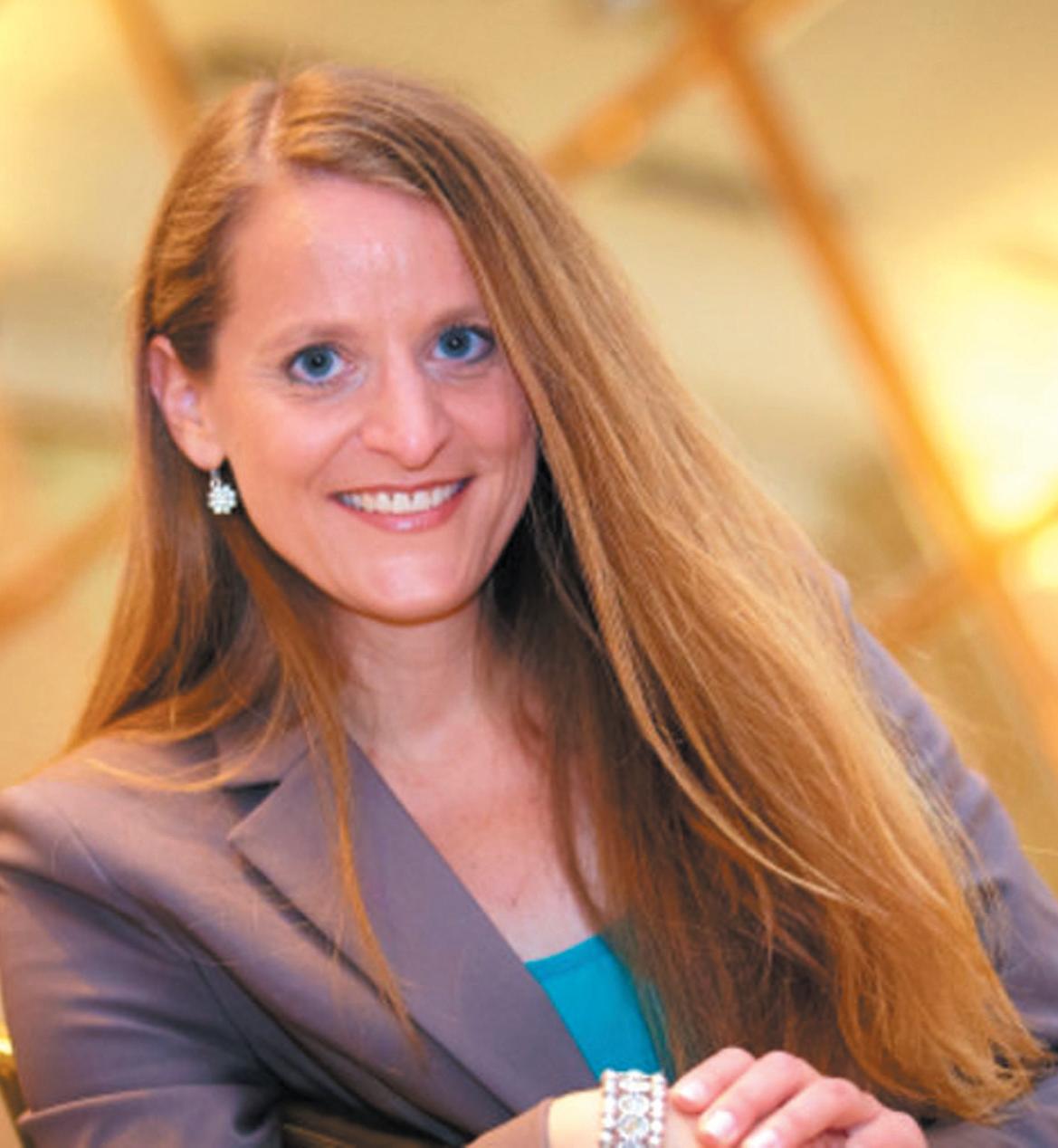
Younger consumers –highly sought after by marketers – are likely to support toppling the discount status quo. A recent survey by Horizon Media found that 87 per cent of 18- to 34-year-olds agreed with the statement that “we have a responsibility as consumers to put our dollars behind brands that behave in socially conscious ways.” As Kirk Olson, senior vice president at Horizon Media, observed: “When people view it as part of their own responsibility as human beings to spend money with social good in mind, it becomes personal. And when it becomes personal, people are more likely to act based upon that belief.”
A private sector proposal that helps our struggling neighbours should win over progressives and conservatives alike, but admittedly there will be barriers to acceptance. Some poor people suffer from shame about their low income. And the grocery checkout counter can double as a hazing line for customers who display an EBT card. It will also prove a challenge to change
Some consumers might object to paying more than their less fortunate neighbours (though Gendron reported “no complaints from our ridership” about its pricing structure); many more, suggests public opinion research about progressive taxes, will applaud such an initiative. Earlier this year, Gallup reported that more than three times as many Americans believe low-income people pay too much in taxes rather than too little. And repeated attempts by politicians to sell a flat tax always fall flat. Klein posed another potential caveat. When retailers promote how magnanimous they are, consumers may discount it as “window dressing.”
The nonprofit sector can alleviate that concern. To reward companies that offer the opportunity discount, an independent association funded by foundations could serve as a public cheerleader, publicizing corporate participation, conducting outreach among low-income consumers and issuing a seal of approval. Perhaps give annual awards for the biggest discounter. Soon enough, price cuts for the poor could produce a competitive advantage. If Target, which promotes “being a good neighbour” as a mission on its website offered a break to the poor on, say, Tuesdays, how long would it take Walmart, which touts that it wants “to do business in a way that enhances economic opportunity,” to follow suit?
— Wallis is the managing director of the Economic Hardship Reporting Project, a journalism nonprofit





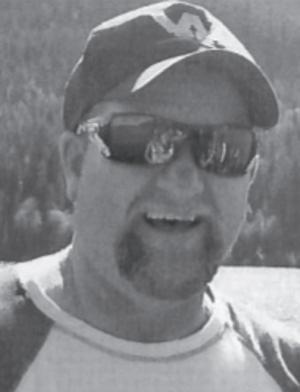


Hector William Pruden Feb 8, 1940 to Oct 10, 2018
Passed away peacefully at UHNBC hospital on October 10,2018
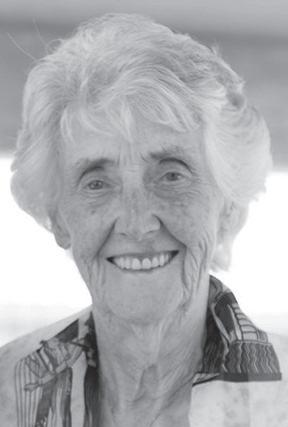
Julia Audrey Serup 16 November 193113 October 2018
With heavy hearts, we announce the passing of our beloved Mother and Grandmother.
Julia was born in Southampton, England to Hamish and Audrey Reid. As a physiotherapist, she immigrated alone to BC in 1955, working in the Kootenays before moving to Prince George.
Julia was predeceased by husband Svend whom she married in 1957. She is survived by: daughter Sheila with Jeff Billinton and children Christian and Fiona; son Paul with Mary Jean and son Isaac; son Neil with Judy and children Kyle, Courtney and Brendan; and son Michael with Hoang Tran.
Survived by brother Dr. David Reid and Natalka of St. Andrews, Scotland and sister Mrs. Jane McCormack of Kirkcaldy, Scotland, and their families; and by Svend’s family in BC and Denmark. She was a pioneer in advancing inclusive education for children with disabilities. A writer of letters, she took great interest in local, provincial and national affairs. All are invited to a service at Westwood MB Church on Thu, Oct 18 at 1 pm. In lieu of flowers, donations may be made to Cedars Christian School (https://cedars.bc.ca/ ) or Logos School of English in Cyprus (http://www.logos.ac.cy/ ).
BUSINESS OPPORTUNITY
Established Franchise Tax Preparation BusinessMackenzieservicing and McLeod Lake area for over 30 years.
Gross Revenues of $85,000 to $90,000 Annually and Potential to expand revenues in a growing economy.
Transition support available for the right buyer. Serious Inquires Only Office (250)997-9003 Home (250)997-5538









































































Linda NGUYEN Citizen news service
TORONTO — Canada is open to doing more business with China now that a trading agreement with the United States and Mexico has been finalized, says Prime Minister Justin Trudeau.
“Obviously, China is the world’s second-largest economy and growing, and will remain an important place to do business and to look for opportunity,” Trudeau told the Fortune Global Forum in Toronto on Monday.
“We will continue to look (at increasing trade), but we will continue to do it in the way Canada always has, mindful of the challenges, both of scale and of different approaches to business, in a way that is thoughtful about drawing benefit and protections for Canada.”
The prime minister noted that Canadian officials have been working over the past year to grow trade relations with China.
He said that under the newly agreed U.S.-Mexico-Canada Agreement (USMCA), all three
countries now need to notify their trading partners if they engage in trade talks with any “non-market economies,” including China.
But he noted that the “reciprocal” clause does not stop Canada from doing business with whom it pleases.
China has openly criticized Section 32.10 of the new USMCA, arguing that it is an attempt by the U.S. to thwart its trading relationships with Canada and Mexico.
The White House is currently involved in a trade war with China and has slapped tariffs on hundreds of billions of dollars worth of Chinese goods, prompting retaliation from Beijing.
In an interview on the stage at the start of the three-day conference, Trudeau described a tumultuous, and at times, testy negotiation process to get the trade agreement inked.
“I think what people will remember is where we ended up,” he told a crowded room of Canadian and international business leaders.
“In negotiations, people have different styles in their approach. We focused on staying constructive, thoughtful, present, at the
table, patient.”
Trudeau said many had doubts about whether his government was going to be able to finalize the trade deal, which he touted as having reduced uncertainty for the Canadian economy.
“We have secured access to the U.S. market, quite frankly, at a time when a lot of investors that I have talked to around the world were wondering if we would be able to secure that,” he said.
“Obviously, the U.S. is going through, as it does from time to time, a bit of a protectionist phase and being able to ensure that investments in Canada will continue to have preferential access to the extraordinary market that is the United States is a big and important thing.”
Earlier this month, Ottawa announced that it had reached an 11th-hour deal with the United States and Mexico to modernize the North American Free Trade Agreement.
The trilateral pact, which still faces hurdles in implementation, is anticipated to protect billions of dollars of daily trade and support millions of Canadian jobs.
bit of footing at the start of the corporate earnings season after last week’s spike in volatility, said Craig Fehr, Canadian markets strategist for Edward Jones. North American markets lost ground during the day after ending Friday on the upswing following a few days of heavy losses.
“I think we’re going to get this kind of tennis match between the ongoing anxiety of the selloff and probably the positive news of corporate earnings and that probably can keep the markets bouncing around,” he said in an interview from San Francisco.
“I expect volatility to continue this week, probably not to the degrees we saw last week but I think the balance between those two forces at the moment are probably going to keep the markets a little bit on edge this week.”
The S&P/TSX composite index closed down slightly, losing 4.82 points to 15,409.47, after dipping to a low of 15,398.47 on 246.8 million shares traded. The health care sector gained 6.7 per cent, followed by gold. Information technology, energy and financial sectors were the biggest losers on the day.
Energy was down on some geopolitical concerns related to the suspected death of a Washington Post columnist after he had entered the Saudi Arabian consulate in Turkey.
Most cannabis stocks enjoyed solid gains as the enthusiasm that has driven the sector higher continued.
Fehr expects the exuberance will continue past Wednesday’s legalization of recreational cannabis use.
“I don’t think that that has to necessarily come an end just because of legalization but I think the enthusiasm will wane once the kind of the shimmer wears off this newness to the growth story here.”
One in five Canadian businesses hit by cyberattacks last year
Christopher REYNOLDS Citizen news service
More than one in five Canadian companies say they were hit by a cyberattack last year, with businesses spending $14 billion on cybersecurity as they confront greater risks in the digital world, according to a new Statistics Canada survey.
The most common suspected motive was an attempt to steal money or demand a ransom payment, according to the survey.
Theft of personal or financial information was less typical – less than one-quarter of the cyberattacks – though it was the most-cited reason for investing in cybersecurity, StatCan said.
“Canadian businesses continue to rapidly embrace the internet and digital technologies, which expose them to greater cybersecurity risks and threats,” the agency said in a release Monday.
“However, the impact of these risks and threats on the investment and day-to-day decisions of businesses are not easily understood as cybersecurity incidents often go unreported.”
Only 10 per cent of businesses affected by a cyberattack reported it to law enforcement agencies last year, StatCan said.
That may change after Nov. 1, when key provisions of the threeyear-old federal Digital Privacy Act come into effect, requiring companies to tell Canadian consumers when their personal information is breached.
In Europe, a sweeping new privacy law introduced in May imposed strict rules around data security and personal privacy, affecting Canadian companies that offer products or services to European Union consumers –and that could face fines of up to 20 million euros for violations.
In 2017, Canadian businesses shelled out $8 billion on cybersecurity staff and contractors, $4 billion on related software and hardware and $2 billion on other prevention and recovery measures, the survey found. The total represented less than one per cent of their total revenues.
Large businesses – those with 250 or more employees – were more than twice as likely as small ones – between 10 and 49 employees – to be apparent targets, according to the report. It said
the attacks resulted in an average of 23 hours of “downtime” per company in 2017. Data breaches have become a familiar feature on the corporate landscape. Last week, Facebook said an attack on its computer systems announced two weeks earlier had affected 30 million users.
In August, some 20,000 Air Canada customers learned their personal data may have been compromised following a breach in the airline’s mobile app. The Bank of Montreal and the Canadian Imperial Bank of Commerce both suffered data breaches last May. Equifax announced in 2017 that a massive data breach compromised the personal information and credit card details of 143 million Americans and 100,000 Canadians. In the past three years, millions of consumers have been affected by hacks against a panoply of companies including British Airways, Uber, Deloitte, Ashley Madison and Walmart.
“There’s a lot more to come,” said Amir Belkhelladi, who runs cybersecurity for Deloitte in Eastern Canada.
“Technology is becoming essential in our life, so cybercrime that leverages that technology is likely to increase.”
Belkhelladi welcomed the StatCan survey – the first of its kind in the country – as a basic metric to rank Canada against other countries, but stressed the less concrete consequences of cybercrime.
“The reality for many of the businesses and organizations out there, it’s an impact on their business reputation. That’s much less tangible, that’s much harder to quantify,” he said.
While many large companies now have sturdier safeguards –such as cyber-liability insurance – soft points along the supply chain can still open the backdoor to a breach.
“Very often you’ll see instances where the attack came through a supplier of some sort, or someone who’s in their ecosystem who’s trusted,” said Belkhelladi.
Data for the survey – titled the Canadian Survey of Cyber Security and Cybercrime and conducted on behalf of Public Safety Canada – were collected between January and April 2018, with a sample size of 12,597 businesses.
